Cyber security companies ‘must remember who the enemies are’
Tech giants must collaborate more with the wider industry, WithSecure’s CEO urges, as he lays bare European anxieties
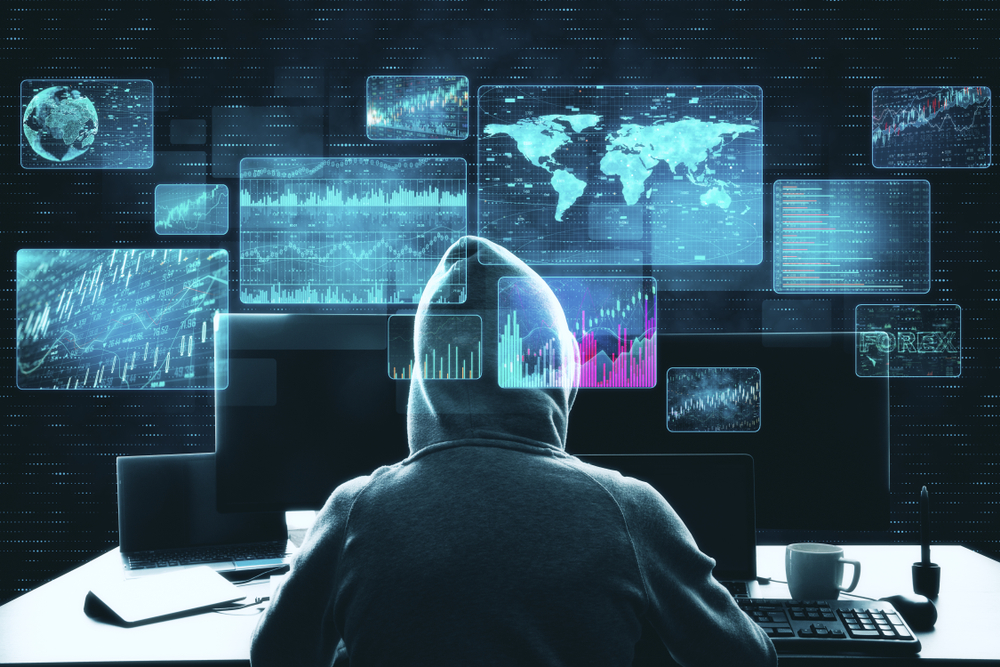

“I’m not an optimist,” WithSecure’s CEO Juhani Hintikka laments, his voice dropping and emotion beginning to show, as we discuss the new dynamic in the war against ransomware.
You can best characterise our time in Helsinki by the sunshine that dazzled attendees on a chilly June evening across the archipelago, or ongoing bemusement at a sun that never truly set. It was impossible, however, to avoid the shadow Moscow had cast over WithSecure’s inaugural Sphere22 conference.
For all the excitement we shared over reuniting for an in-person event, the positivity was undermined by a set of insecurities rumbling beneath the surface. WithSecure CTO Christine Bejerasco, for example, reminded us Russia hosts a majority of the world’s most nefarious ransomware operators. F-Secure founder Risto Siilasmaa, meanwhile, pleaded for Europe to impose its own technological identity in the face of increasing Chinese and US dominance. Drawing a line through these talking points, Hintikka urged the cyber security industry to remember – as competitive as things can get – who the real enemies are.

Russia holds the key in the war on ransomware
Putin’s invasion of Ukraine has undoubtedly changed the face of diplomacy, but the ramifications for cyber security are equally as significant. As Bejerasco says, the only way to “cut the head off the snake” is by putting ransomware operators behind bars; you can take down servers and networks, but the individuals at the heart of the industry will always reincarnate under different guises.
Fewer players in a consolidated landscape give Bejarasco reason for optimism. If the industry can do a better job of targeting ransomware supply chains, we can stem the tide. Cyber crime, however, is truly borderless, and law enforcement agencies like the FBI and Europol need to cooperate to win the war – with Russian agencies, in particular.
Russia, for instance, previously claimed it was instrumental in the operation to take down REvil, but we’re a long way from resuming even a basic degree of cooperation with the rogue state, Hintikka tells IT Pro. When it comes to emerging threats like Conti and other major players in the ransomware industrial complex, the chances of leaning on Russia are scant. This new dynamic in the cyber battlefield means the future is bleak, and the scale of the ransomware threat facing businesses is only likely to spiral despite our best efforts.
Reversing Europe’s waning sphere of influence
RELATED RESOURCE
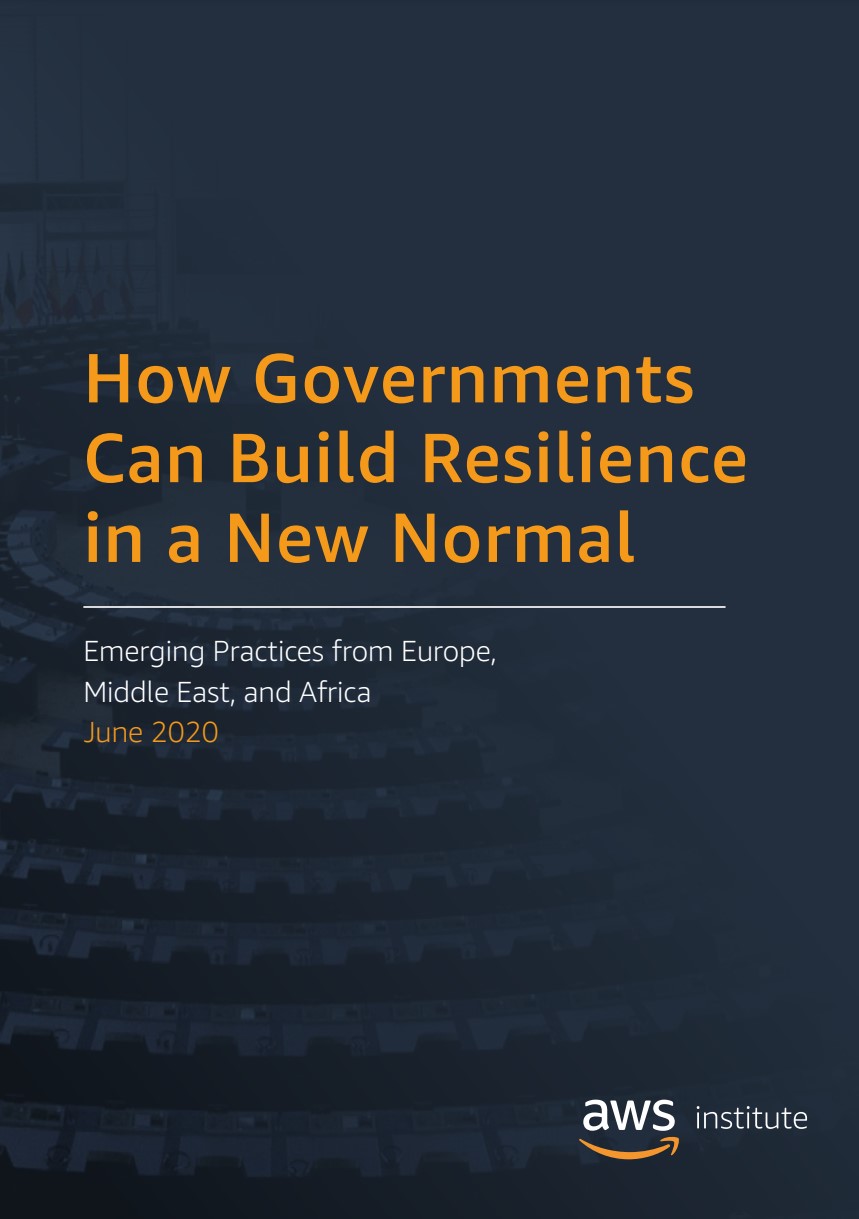
How governments can build resilience in a new normal
The cloud enables the flexibility public organisations need to overcome disruption
These anxieties go further yet, though. The European sphere of influence itself is under threat not just from Russia, but from the soft power of China and the US. Although we deem the US to be our friends and allies, F-Secure founder Risto Siilasmaa says, European companies are being outpaced in the race to define security principles and philosophies.
Get the ITPro daily newsletter
Sign up today and you will receive a free copy of our Future Focus 2025 report - the leading guidance on AI, cybersecurity and other IT challenges as per 700+ senior executives
Siilasmaa worries, in particular, about US legislation like the ACCESS Act and the CLOUD Act, which work to manage how data flows and where data resides. EU firms are also finding it hard to compete with US tech giants that are acquiring continental businesses left, right and centre, influencing European projects like Gaia-X, and running roughshod over smaller firms with monopolistic business practices. It’s a combination of these issues, and others, that leads Hintikka to urge industry players to remember who the real enemy is.
“We all form part of this fabric that is protecting societies and our way of life, and that is something that unites us,” he says. “Even in Finland, there are several cyber security companies here that are all considered part of this public-private partnership in terms of combatting the impact of cyber threats.” Some certain mechanisms and structures already exist to this end. Hintikka, for example, sits on the board of the European Cyber Security Organisation (ECSO), which is a forum through which European companies can define their collective position on cyber security. There is also a healthy degree of threat intelligence sharing between companies globally.
Is there more that larger cyber security companies can do to encourage collaboration for the greater good? Yes – always, the WithSecure CEO says. “I do have some concerns about some very large American product-based companies, in terms of their overall position and influence in Europe,” he continues, clarifying: “It’s a challenge for the industry if Microsoft [for example] provides their Defender for free as part of the overall licence.”
Co-security: Another meaningless buzzword or prescient philosophy?
WithSecure is adamant Sphere22 is a conference like no other, even going so far as to brand it an ‘unconference’. Nevertheless, all the hallmarks of a classic tech conference were there, from the Cyber Sauna recording booth to simulated Northern Lights and TED Talk-style presentations on a circular stage. The spherical buy-in was heavy; even our conference badges were round. Needless to say, we were on high alert over any further funny business to emerge from the marketing team.
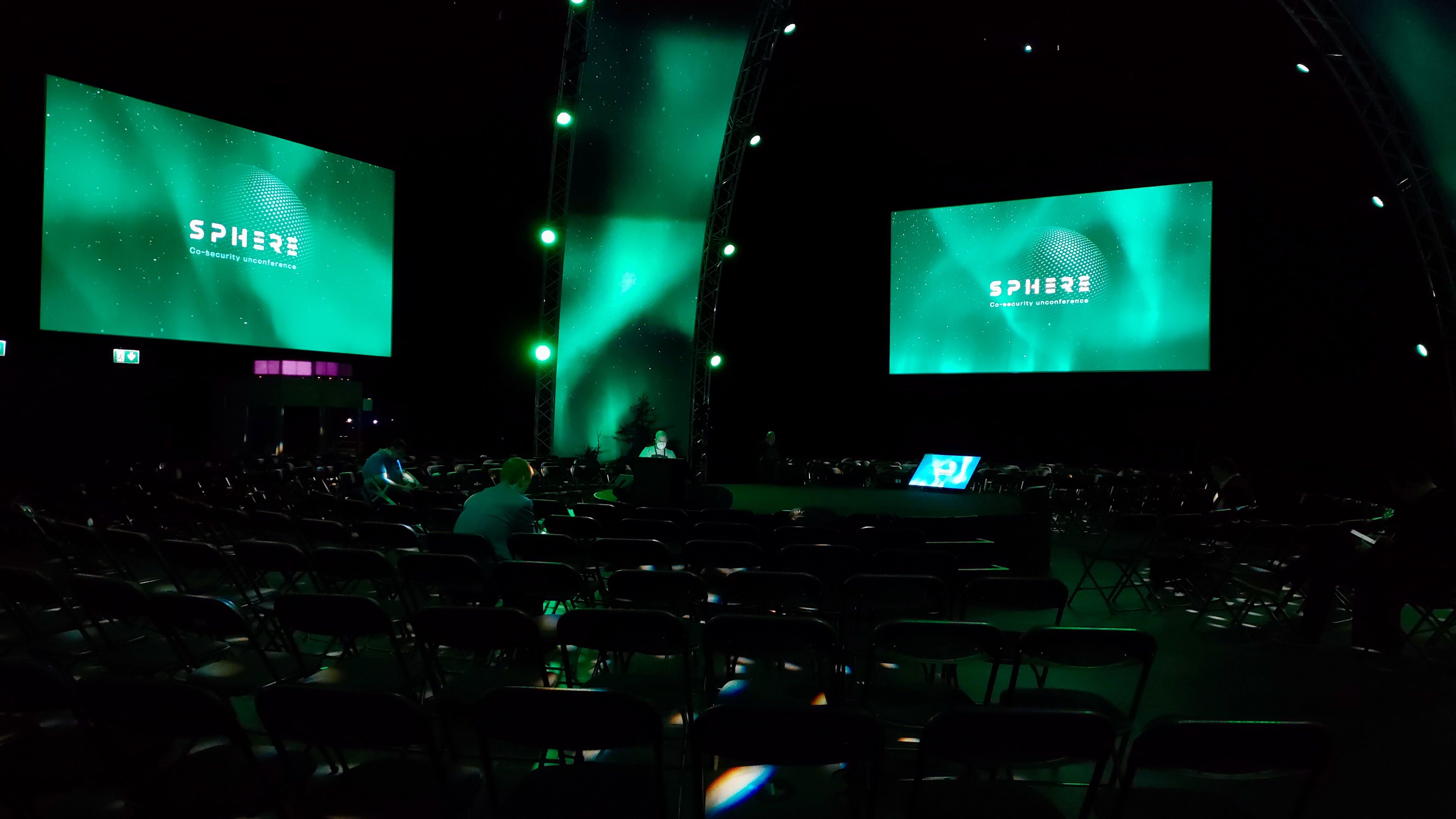
The buzzword-in-chief was co-security. We were introduced to this concept when F-Secure first announced the spin-off in March. Back then, the phrase felt rather empty and vague; something of a shiny nugget the brand could latch onto in an attempt to define itself early. The firm has since put more thought into attaching meat to the bones, but then, rather ingeniously, the firm latched onto its own dereliction to fully clarify its core philosophy by asking us to do it; it kicked off Sphere22 by asking us to contribute our own ideas towards a digital cyber security manifesto, which would be condensed and published at the end of the event. This was collaboration – co-security – whatever you want to call it, embodied.
Predictably, asking members of the WithSecure leadership team to define what co-security meant yielded varied responses depending on their particular areas of interest, whether cloud, consultancy, or otherwise. On consultancy, the company hopes to turn the tide by progressing a variety of internal training and digital skills schemes, for example, while making the company a more attractive place to work. Nevertheless, there was a commonality in wanting to shift the cyber security paradigm towards one that encourages more partnership; a stronger-together-than-the-sum-of-our-parts situation.
Beneath the surface of this mid-sized cyber security conference at which everything was comically circular, there were brief glimpses of honest and raw anxiety over the state of play in Europe. The growing US sphere of influence means snatching away the chance for much smaller European companies to contribute to future enterprise security frameworks. Sharing a land border with Russia, too, means Finland is haunted by physical and cyber threats melding into one monstrous spectre. Lecutres from renowned journalists Philip Ingram and Carole Cadwalladr, in particular, on threats to global security and democracy respectively, drummed this home.
Between discussions about WithSecure’s cloud success or how it plans to get its consultancy business back on track, the mood, at times, threatened to spill over into existential crisis territory; as if European identity – seen through the prism of a newly anointed Finnish cyber security company – was itself on the line. Despite the intrigue at how WithSecure wished to present itself, and how it would address its key challenges, It was impossible to ignore the bigger picture at Sphere22.

Keumars Afifi-Sabet is a writer and editor that specialises in public sector, cyber security, and cloud computing. He first joined ITPro as a staff writer in April 2018 and eventually became its Features Editor. Although a regular contributor to other tech sites in the past, these days you will find Keumars on LiveScience, where he runs its Technology section.
-
 Should AI PCs be part of your next hardware refresh?
Should AI PCs be part of your next hardware refresh?AI PCs are fast becoming a business staple and a surefire way to future-proof your business
By Bobby Hellard Published
-
 Westcon-Comstor and Vectra AI launch brace of new channel initiatives
Westcon-Comstor and Vectra AI launch brace of new channel initiativesNews Westcon-Comstor and Vectra AI have announced the launch of two new channel growth initiatives focused on the managed security service provider (MSSP) space and AWS Marketplace.
By Daniel Todd Published
-
 "Thinly spread": Questions raised over UK government’s latest cyber funding scheme
"Thinly spread": Questions raised over UK government’s latest cyber funding schemeThe funding will go towards bolstering cyber skills, though some industry experts have questioned the size of the price tag
By George Fitzmaurice Published
-
 Modern enterprise cybersecurity
Modern enterprise cybersecuritywhitepaper Cultivating resilience with reduced detection and response times
By ITPro Published
-
 IDC InfoBrief: How CIOs can achieve the promised benefits of sustainability
IDC InfoBrief: How CIOs can achieve the promised benefits of sustainabilitywhitepaper CIOs are facing two conflicting strategic imperatives
By ITPro Published
-
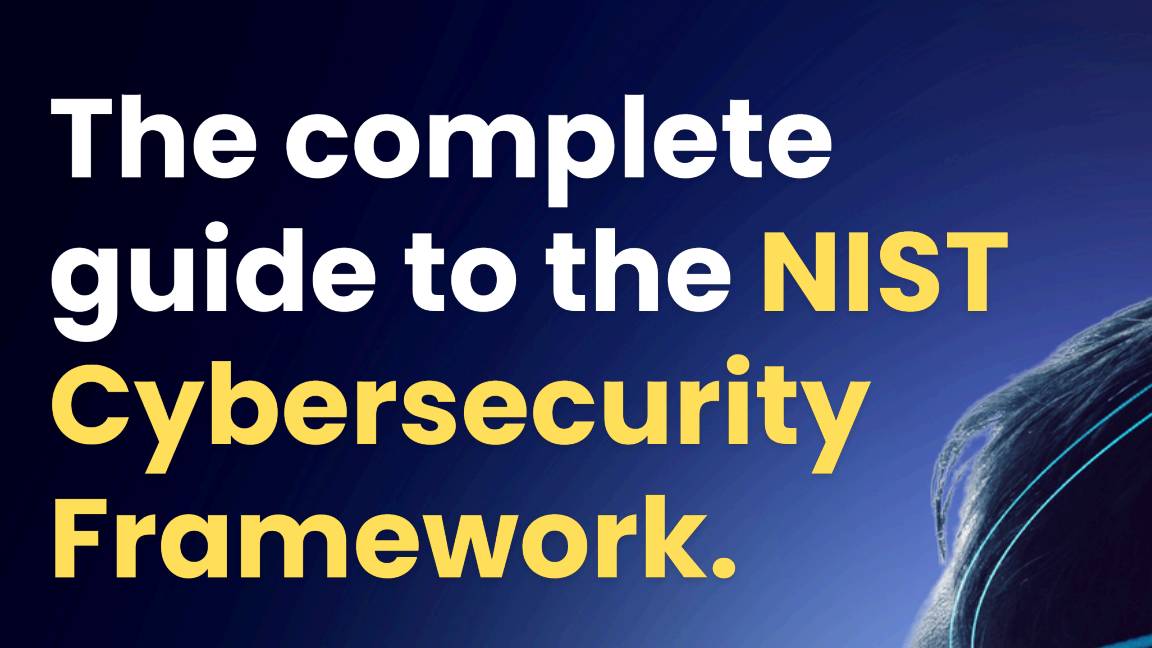 The complete guide to the NIST cybersecurity framework
The complete guide to the NIST cybersecurity frameworkWhitepaper Find out how the NIST Cybersecurity framework is evolving
By ITPro Published
-
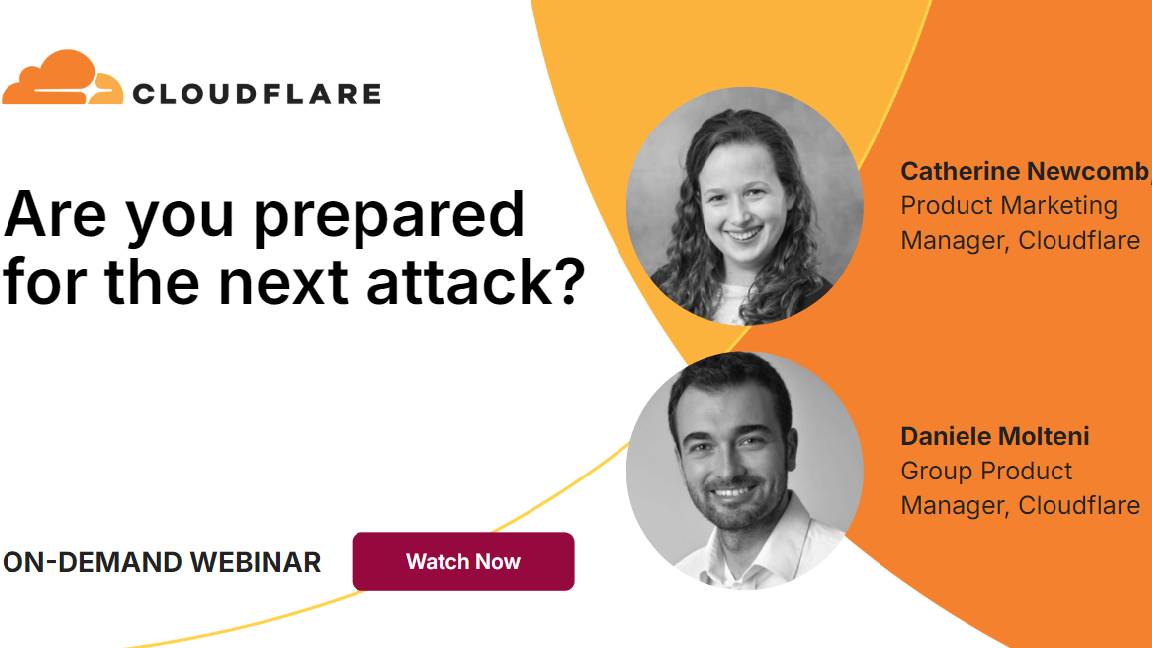 Are you prepared for the next attack? The state of application security in 2024
Are you prepared for the next attack? The state of application security in 2024Webinar Aligning to NIS2 cybersecurity risk-management obligations in the EU
By ITPro Published
-
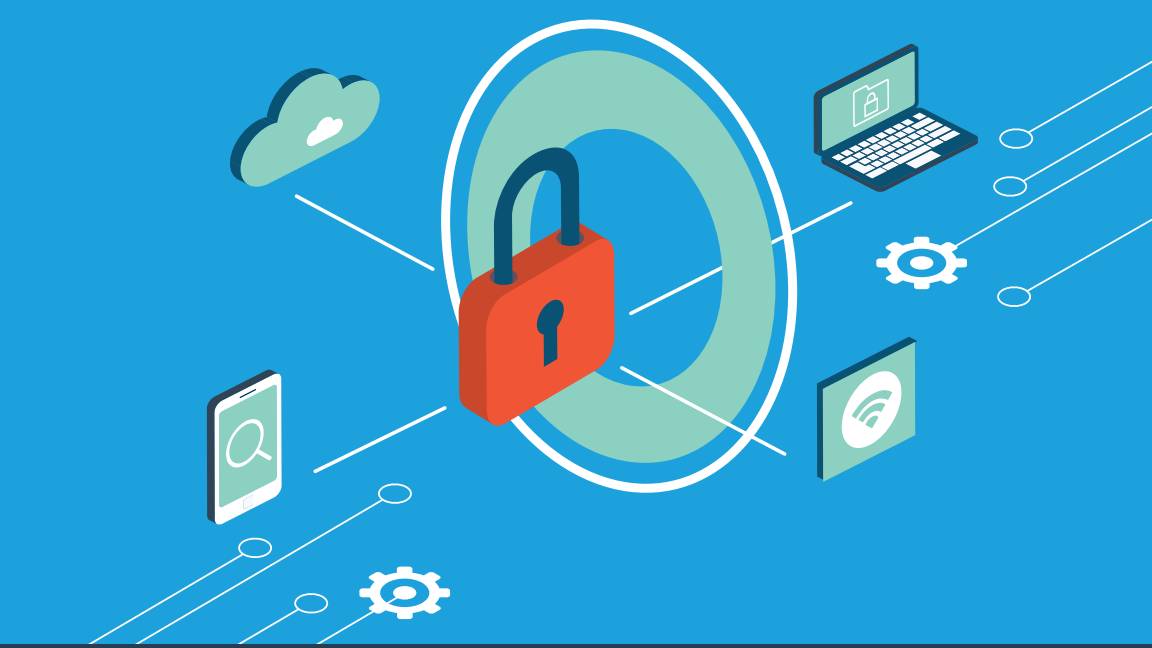 The economics of penetration testing for web application security
The economics of penetration testing for web application securitywhitepaper Get the most value from your security solution
By ITPro Published
-
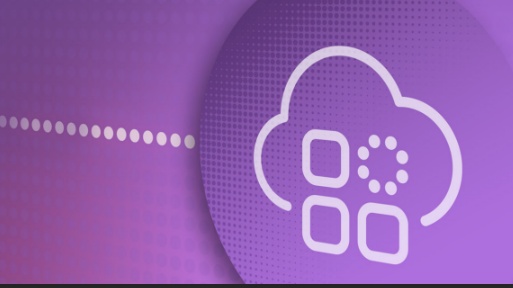 How to extend zero trust to your cloud workloads
How to extend zero trust to your cloud workloadsWhitepaper Implement zero trust-based security across your entire ecosystem
By ITPro Published
-
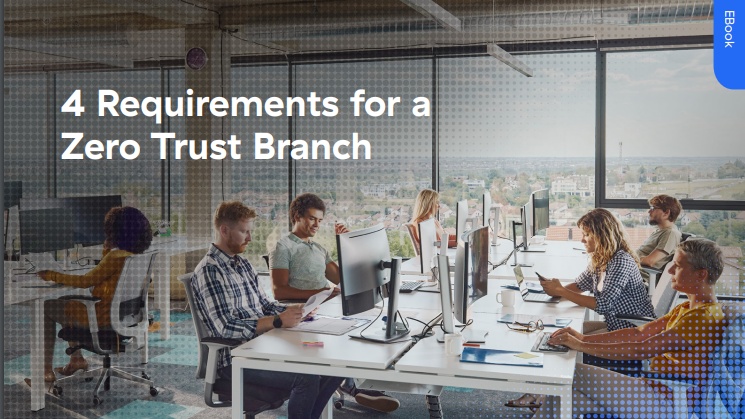 Four requirements for a zero trust branch
Four requirements for a zero trust branchWhitepaper Effectively navigate the complex and ever-changing demands of security and network connectivity
By ITPro Published